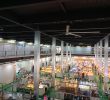CAGAYAN DE ORO CITY, Philippines — One of the biggest peasant groups in the country has urged the national government to revise the Rice Tariffication Law (RTL) claiming it does not serve the interest of the farmers and consumers.
The Federation of Free Farmers (FFF) said the benefits of RTL or Republic Act 11203 are “overstated and deceptive.”
Rice plant (palay) prices, the group said, decreased by an average of P1.37 kilo vis-à-vis 2017 levels, “causing cumulative losses of P66 billion and an income decrease of P4,657 per hectare per person.”
FFF also noted that RTL has hurt poor consumers as they need to spend an additional P12 per kilo for regular milled rice when they can buy it from the National Food Authority for only P27 per kilo. “About 87% of imported rice were premium grades sold to well-off consumers,” it said.
The federation said there is “no reliable and up-to-date information” on whether the estimated P40 billion spent for rice farmers under the RTL’s Rice Competitiveness Enhancement Fund (RCEF) have really reduced farmers’ production costs and improved their competitiveness.
Recommendations
FFF said changes in the RTL should aim for proper management of imports and supply to ensure stock availability while avoiding supply gluts that unduly depress palay prices. The government, it added, must ensure that gains from lower import prices actually benefit consumers and give them timely and effective relief.
Among the recommendations of the group are to “restore [NFA’s] powers to inspect warehouses and apprehend hoarders and price manipulators”, authorize the NFA to sell subsidized rice to targeted sectors, and strengthen NFA’s capacity to prop up palay prices through strategic procurement, aside from its buffer stocking functions,
FFF also urged the Marcos administration to provide alternative sources of rice for consumers, including electronic trading systems, whereby they can sell directly to consumers using NFA and private warehouses as depository and logistic hubs. Farmers should also be allowed to select their preferred types and brands when acquiring needed farm inputs and implements.
To extend more timely and effective assistance to affected farmers, the FFF said the government can reconfigure the RCEF and other tariff collections to support interventions that are location-specific and can be dynamically adjusted as farmers’ needs change over time; maximize tariff collections by plugging loopholes that encourage undervaluation, misdeclaration and outright smuggling of rice imports; and give incentives for local government units to provide marketing support to their farmer-constituents. (davaotoday.com)










